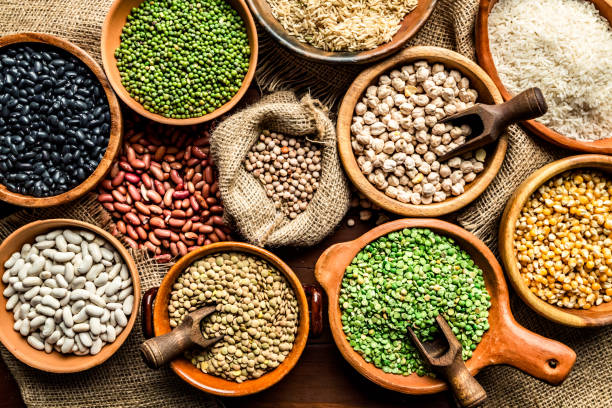They are tasty. They are healthy. Win-win.
It is essential to maintain
good heart health at any age. The risk of a number of diseases, including heart
disease and stroke, will go down as a result. However, you'll also feel more
prepared to participate in other healthy activities like exercise and getting
enough sleep.
One
way to start improving your health right away is to eat well for your heart.
Why is food so significant?
"We want to keep our
blood pressure in check; maintain a healthy cholesterol and triglyceride level,
according to The Protein-Packed Breakfast Club author Lauren Harris-Pincus, MS,
RDN. A healthy diet will also help you keep a healthy weight, which can help
you avoid a lot of health problems.
The good news is that you can
improve your heart health and get a good diet overall by adding just a few
foods to your diet.
More good news: You can use
heart-healthy foods for breakfast, lunch, and dinner in a variety of ways and
never get bored. They are also delicious and adaptable. Therefore,
incorporating them into your diet and lifestyle is beneficial to both of you.
Additionally, a healthy heart
can help you live longer and prevent aging, so these nutrient-dense foods will
provide you with both short-term fuel for your body and long-term health
benefits as you get older.
This week, stock up on these ten
heart-healthy foods and keep them as regular staples in your fridge and pantry.
1. Beets
According to Kelly Jones,
M.S., R.D., "beets really shine due to their high dietary nitrate
content." The body converts dietary nitrates from beets into nitric oxide,
which aids in the dilation of blood vessels. Beets contain a variety of
vitamins and minerals, including potassium, which is good for the heart. This
can lower blood pressure and alleviate stress on your heart.
According to Jones, "Love
Beets has pre-cooked beets in the refrigerator section of the grocery store and
a beet powder that provides the nitrate benefits you want when you're in in a
hurry. "You can certainly cook them yourself," however, "beet
juice is an easy way to get concentrated nitrates." Simply add it to
smoothies or oatmeal.
2. Juicy Cherries
Polyphenol antioxidants found in tart cherries have anti-inflammatory properties. According to a 2019 study, drinking tart cherry juice on a regular basis also lowers blood cholesterol levels.
If you don't want to drink the juice, you could make smoothies with
frozen tart cherries or snack on dried tart cherries with nuts,” Jones says.
She adds that Eden Organics offers a dried variety that is sweetened with apple
juice concentrate rather than refined sugar.
3. Pistachios
Pistachios contain
better-for-you mono- and polyunsaturated fats in nearly 90% of their content,
and each serving also contains 3 grams of fiber. Try the honey-roasted and
chili-roasted varieties of Wonderful Pistachios for a snack that's even more
satisfying, Jones says.
4. Whole Cereals
"In general, a diet high
in whole grains may lower the risk of heart disease. This is evident in
well-researched eating patterns like the DASH and Mediterranean, and a new
study found that replacing refined grains with whole grains reduced total and
LDL cholesterol as well as triglycerides,” Jones says. Additionally, you are
not required to avoid gluten unless you have Celiac disease.
"In fact, studies show
that gluten does not increase the risk of heart disease," she asserts. However,
because gluten is linked to a lower risk, avoiding it may increase it intake of
whole grains that are good for the heart."
5. Potatoes
According to Jones, potatoes
contain more potassium per serving than a banana (with creamer potatoes providing
more potassium than russet potatoes) when it comes to heart health and blood
pressure.
If you think they take too
long to cook, try microwaving them. Additionally, they are a good source of the
vitamin C antioxidant. She says that Little Potato Company makes microwave-ready
kits that cook in just five minutes and include seasoning.
6. Oats
According to Harris-Pincus, "soluble fiber found in whole grain oats and oat bran can help lower LDL, or "bad" cholesterol." She explains that eating three grams of soluble fiber and eating a diet low in saturated fat may lower the risk of heart disease.
Each 12 cup serving of old-fashioned oats contains 2 grams of
soluble fiber. Enjoy a bowl of oatmeal, toss some in a smoothie, or make
overnight oats with healthy toppings like nuts, seeds, and berries to get even
more fiber.
7. Avocado
The American Heart Association suggests limiting saturated and trans fats and including monounsaturated and polyunsaturated fats whenever possible.
According to Harris-Pincus, avocado is
primarily monounsaturated, which can assist in maintaining healthy cholesterol
levels when consumed in place of foods high in saturated fat.
8. Salmon
The majority of people don't
eat the two servings of fatty fish per week that are recommended to lower their
risk of heart disease and stroke. Get your omega 3 fix by eating salmon,
herring, or sardines twice a week. According to Harris-Pincus, even canned tuna
contains a few grams of omega-3 fatty acids. Some brands do this.
Try fish in new ways and think
creatively. It's delicious on a whole grain cracker with avocado, sardines, and
a squeeze of lemon, she says. Don't forget about salmon in cans either! It's
always available, cheap, and so simple to add to salads, sandwiches, pasta
dishes, and more.
9. Flaxseed
According to Harris-Pincus, "flaxseed is high in fiber, omega 3 fats, and phytochemicals called lignans" may also help lower blood cholesterol and lower the risk of heart disease.
For additional fiber and protein, sprinkle ground flax seed on yogurt, cottage cheese, smoothies, muffins, pancakes, and waffles.
10. Beans
















0 Comments